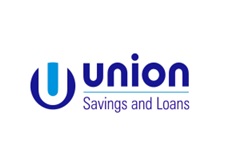 The British High Commissioner to Ghana, Mr Jon Benjamin, has said that the potential of Ghana’s small and medium scale enterprises (SMEs) industry is being underutilised.
The British High Commissioner to Ghana, Mr Jon Benjamin, has said that the potential of Ghana’s small and medium scale enterprises (SMEs) industry is being underutilised.
“Yet, self-dependent small businesses have the potential to grow into new industries for Ghana. Industries that aren’t tied to fluctuating commodity prices”, he stated, adding, industries that create jobs that could transform the lives of the growing number of highly educated people in Ghana have access to very few employment opportunities.
The High Commissioner was speaking at an event at his residence in Accra, dubbed “Enterprise Growth in Ghana”, which sought to facilitate networking between British companies and Ghanaian entrepreneurs, as well as highlight the efforts the British government was making to support enterprise growth in the country.
ENGINE Programme
Mr Benjamin used the occasion to announce the winners of the British government’s ‘Enhancing Growth in New Enterprise’ (ENGINE) Programme, which is being run by the Department For International Development (DFID) in partnership with TechnoServe.
Under the £4.2 million ENGINE Programme, over 1000 SMEs are being supported to overcome barriers to growth and build competitive businesses in Ghana.
This is being done through training, mentoring, advisory services and assisting the entrepreneurs to commercialise new, innovative products and services and link them to capital providers and target markets.
He was happy to note that Ghana was UK’s fourth largest export market in sub-Saharan Africa and had strong economic, historical and political connections with the UK.
He stressed that SMEs were very important to an economy, adding that in the UK around 40 per cent of tax was from SMEs.
In the UK , he said corporate tax was currently 21 per cent, down from 26 per cent in 2011 and about to be reduced further to 20 per cent, while in Ghana, corporate tax currently is 25 per cent.
While it takes 12 days to register a new company and costs 0.3 per cent of income per capita, with zero minimum capital costs in the UK, he observed that it takes 14 days and costs 15.7 per cent of income per capita with a minimum capital holding of 3.7 per cent in Ghana.
Some countries, like New Zealand, Chile and Singapore, have even reduced the time it takes to register to a single day and, or made the process free, and said there was no reason why that shouldn’t be the aspiration everywhere.
Registered businesses
In his address, the Deputy Minister for Trade and Industry, Mr Kweku Ricketts Hagan, disclosed that micro and SMEs (MSMEs) constituted about 90 per cent of all registered businesses in the country, adding, “It is these that we are counting on to deliver the economic ingredients that are required to kick start our economy and get us out of the current challenges.”
He said “ We believe that a greater number of the jobs will be created in domestic oriented activities and service sectors for which the MSMEs are the primary providers,” adding, “they, therefore, require our support and that is why the ENGINE Programme is a welcome initiative”.
The deputy minister said Ghana aimed at restoring fiscal equilibrium and stem the impact of external pressures on the economy.
While many of these issues had been addressed by its own home grown policies and strategies, he said the country sought to tackle the remaining challenges with assistance from the International Monetary Fund (IMF).
As part of the event, a debate session was held on “Whether access to finance was the real challenge facing SMEs, or the lack of skills or wrong attitudes to businesses among entrepreneurs?”




